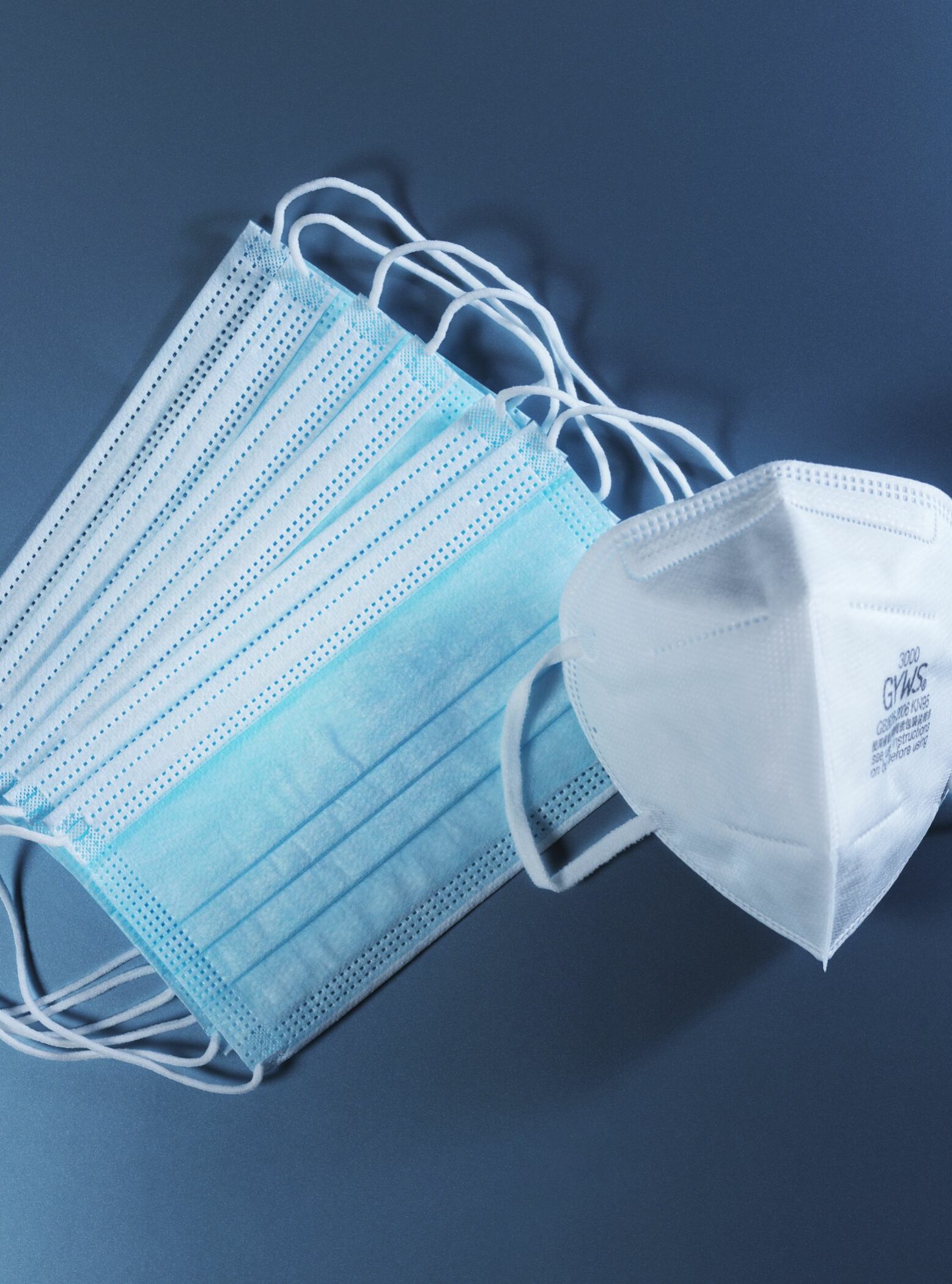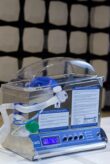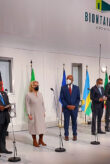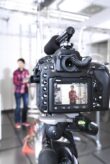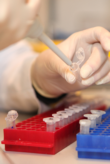Among the many challenges posed by the Covid-19 pandemic is the question of ensuring the quantity and at the same time the quality of protective masks, which are one among many types of protective equipment currently flooding the markets.
The PTB Regional Consultancy Fund Quality Infrastructure (SEE QI Fund) responded to a spontaneous request from a Western Balkans (WB6) partner to organise an exchange of experience on the topic of market surveillance of personal protective equipment (PPE) used against Covid-19. Fourteen market surveillance inspectors from all WB6 countries and one EU expert participated in a half-day online meeting on July 15th, 2020.
The main topic of discussion was protective masks and how they differ from medical masks, textile masks and other protective equipment such as face shields. These products, which serve different purposes, are subject to different categorisations, requirements, and standards, but follow the same principles of EU market surveillance, for instance the responsibility of market agents who place the product on the market. The open exchange of experience helped inspectors to navigate these principles and requirements and to be able to thoroughly plan upcoming market surveillance activities to better protect their citizens.
Officials from market surveillance agencies reported that they experienced a shortage of staff in the past weeks as their inspectors had to support health checks at borders or carry out price controls in shops. Therefore, inspectors found very helpful information that was shared through the European alert system RAPEX or informally between colleagues from different countries or different institutions within a country. The information was of crucial importance to raise the inspectors’ awareness on common urgent issues in the Covid-19 pandemic, to detect fake or problematic products and thereby to potentially save lives of medical professionals or others. For example, one participant shared his first-hand experience of how he detected a fraud and what obstacles had to be overcome until the product was flagged via the EU Information and Communication System on Market Surveillance (ICSMS) and eventually the EU rapid alert system RAPEX and was withdrawn from the European market.

The mere quantity and variety of PPE products was new to all market players, resulting in many inquiries from producers and importers to market inspection agencies. In that regard, a positive experience shared by Serbian colleagues was the setup of a call center by the Chamber of Commerce in cooperation with the Ministry of Economy, through which such inquiries could be channelled and the answers disseminated to all relevant stakeholders.
The external EU expert invited by PTB to the event contributed to the discussion by sharing information on how a recent European Commission recommendation on conformity assessment and market surveillance procedures within the context of the Covid-19 threat is implemented in EU countries, including his own. This recommendation specifies certain exceptions to the general procedure in order to address the need for quick and safe delivery of Covid-19 relevant products such as protective masks. However, most market surveillance and QI procedures remain completely in force.
Monitoring the conformity of protective masks is of critical importance in the ongoing fight against the Covid-19 pandemic. Detecting and removing from the market defective or fraudulent products can directly contribute to ensuring the health and safety of medical staff and citizens. Therefore, the online sharing of experience was a timely event responding to an acute need. All participants stated in the final evaluation that the exchange was highly relevant for their work and fully met their expectations. Due to the overwhelmingly positive feedback, the SEE QI 4 project team considers organising similar virtual events in the future.
Images © PTB, MedicinskaSestra.eu


